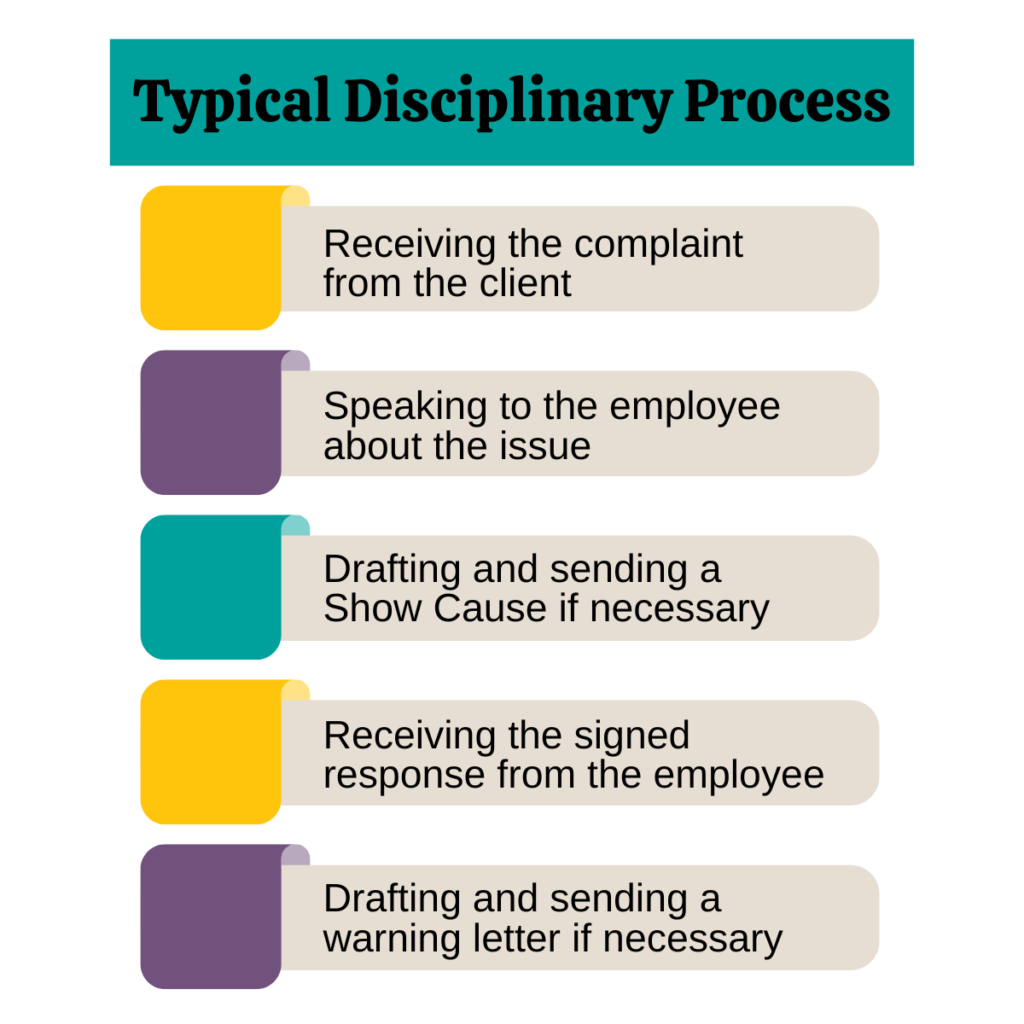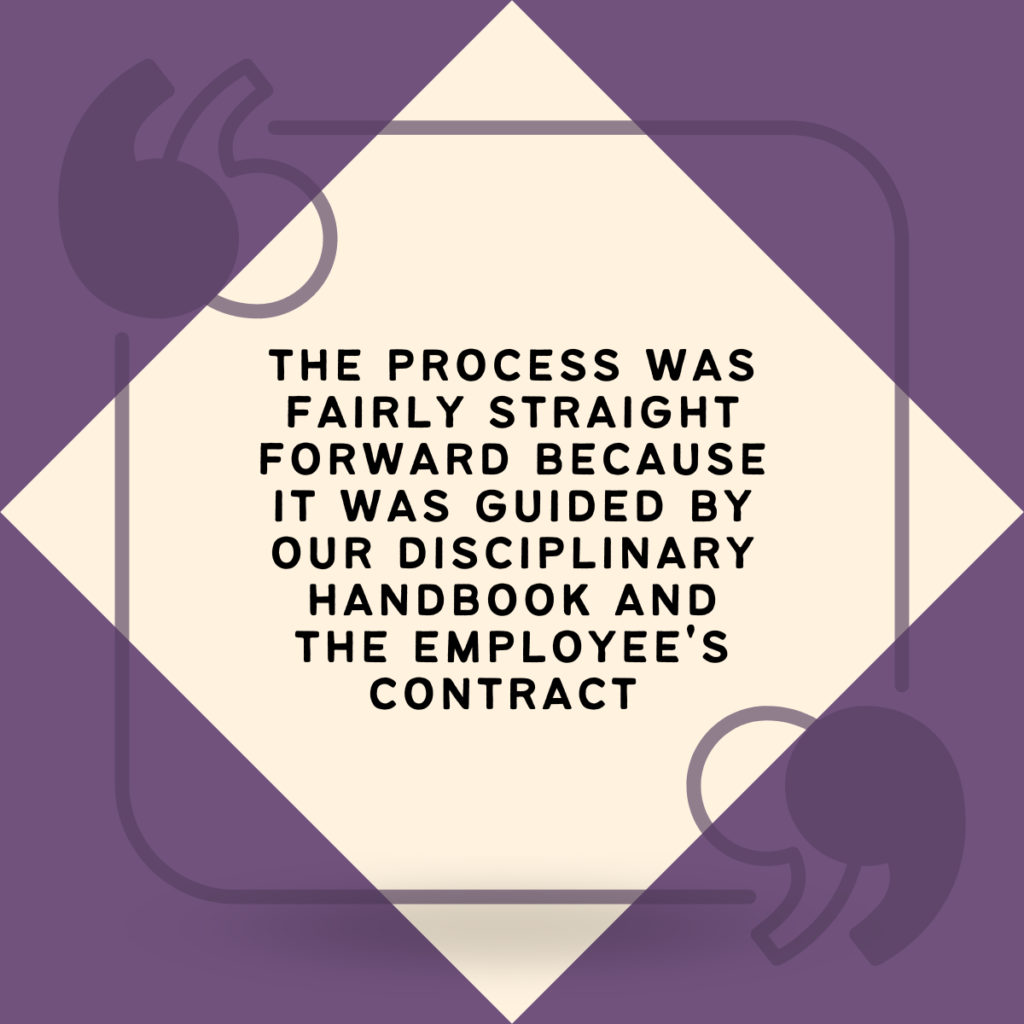by Leigh-Ann Athanasius & David Theuri

Disciplinary procedures in the context of employment law refer to the set of policies and processes that an employer uses to address employee misconduct or poor performance. These procedures are typically outlined in an employee handbook or other company policies and are designed to ensure that employees are treated fairly and consistently. Dealing with disciplinary issues can be challenging, especially when the employees in question are outsourced. But before we get there, let’s cover the bases.
What does a disciplinary process entail?

Disciplinary procedures usually involve a series of escalating steps, starting with an informal discussion between the employee and their manager or supervisor, and progressing to more formal actions such as a verbal warning, a written warning, suspension, and ultimately, termination of employment. The specific steps and procedures involved can vary depending on the nature of the misconduct or poor performance and the policies of the employer.
Employers are typically required to follow certain legal requirements when implementing disciplinary procedures; such as providing employees with notice of the allegations against them, giving them an opportunity to respond, and allowing them to appeal any disciplinary action taken against them. Failure to follow these legal requirements can result in legal action being taken against the employer.
What happens when employees are outsourced?
In such a situation, the responsibility of following through with the disciplinary proceedings is typically on the outsourcing company. This is because they are the official employer of said employee(s). This means that the outsourcing company would need to conduct an investigation on the reported performance or conduct issues, communicate with the employee about the process and finally carry out any necessary measures.
This however, does not mean that the client has no say on the proceedings. In fact, they may still be involved as their own values and policies will greatly influence the disciplinary process; particularly around performance issues. The client could also be required to provide evidence of the employee’s shortcomings to aid the outsourcing company in the investigation.
How the process may go…
PPA was tasked with handling the issue of absenteeism of an employee. The process was fairly straight forward, largely because it is guided by our disciplinary handbook and the employee’s contract. Both of which the client and the employee have available to them and have agreed to.
In this situation, the client raised a complaint with us that the employee had been repeatedly absent. Our first course of action was to contact the employee and find out if that had been the case. Once the employee responded and confirmed that they had been absent, we issued them with a show cause letter to allow them to explain their actions.

After which, PPA then had to evaluate those reasons and determine if the absenteeism was justified. Unfortunately, in this case the reason provided for missing work was not satisfactory; and so we proceeded to issue them a first warning letter, as is outlined in our disciplinary procedures.
Disciplinary processes under this model can be considered to be objective, as the outsourcing company works almost as a third party mediating between the employee and the client. It also provides the assurance that the process is being carried out to the letter of the law. It is important to remember that people and Human Resources management is the core function of your outsourcing provider and therefore the client should trust their provider to carry out the process to the best of their ability while keeping the welfare of all parties in mind.
How should disciplinary action be handled?
For the ideal relationship, both the outsourcing provider and the client should be clear on their roles when it comes to disciplinary processes. If they collaborate effectively, the unfortunate case of disciplinary issues can be dealt with as painlessly as possible. As was the case in our example, PPA and our client managed to work together to address the issue while ensuring that all parties were considered and treated fairly.
The best situations have disciplinary actions outlined in the outsourcing agreement to ensure that there is clear understanding for outsourced employees to ensure that everyone is aware of the expectations and the consequences of any violations.


